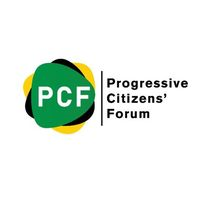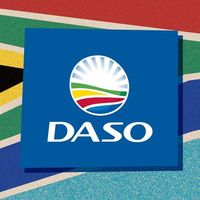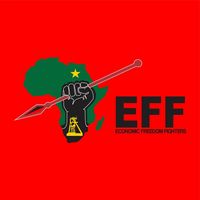The Intense Political Showdown in South Africa
May 29, 2024, 9:37 am

Location: United States, Wisconsin, Johannesburg
Employees: 501-1000
Founded date: 1997

Location: South Africa, Western Cape, Cape Town
Employees: 11-50
Founded date: 2000
South Africa's political landscape is currently ablaze with fervor as political parties across the spectrum gear up for what is anticipated to be one of the most tightly contested general elections in decades. The African National Congress (ANC), a party that once stood as a beacon of hope and liberation, now finds itself at a critical juncture as its majority hangs precariously in the balance.
The issues at hand are not new; they have lingered since the days of Nelson Mandela, and the electorate is growing increasingly impatient for change. With the ANC's support sliding below the 50 percent mark, the party faces uncharted waters, potentially needing to form coalitions to retain power. Political analyst Sandile Swana aptly notes that the winds of change are blowing, and this election is poised to be anything but ordinary.
Under the rallying cry of "Let's do more together," the ANC has been highlighting its past achievements, including the monumental task of dismantling apartheid, fostering a vibrant democracy, and implementing social welfare programs that have uplifted millions out of poverty. However, the realities on the ground paint a different picture - high unemployment rates, rampant crime, corruption scandals, frequent power outages, and water shortages have left many disillusioned.
As the country of 62 million prepares to head to the polls on May 29th, the Democratic Alliance, the largest opposition party, led by John Steenhuisen, is positioning itself as a force for change. Advocating for liberal reforms such as privatization and labor law adjustments, the DA has formed a coalition with smaller parties in a bid to reshape the political landscape.
Adding to the mix are the radical leftist Economic Freedom Fighters, led by Julius Malema, and uMkhonto weSizwe (MK), a new party spearheaded by former president Jacob Zuma. Zuma's party, despite his disqualification from standing for parliament due to a previous conviction, remains a significant player in the electoral arena, particularly in his home province of KwaZulu-Natal.
The looming specter of violence, stemming from past unrest and political tensions, casts a shadow over the election. However, leaders like President Ramaphosa have assured the public that security forces are prepared to address any potential threats.
As South Africa stands on the cusp of a new chapter, the outcome of this election will not only determine the country's leadership but also shape its trajectory for years to come. The stakes are high, the tensions palpable, and the future uncertain as the nation braces for a political showdown of monumental proportions.
The issues at hand are not new; they have lingered since the days of Nelson Mandela, and the electorate is growing increasingly impatient for change. With the ANC's support sliding below the 50 percent mark, the party faces uncharted waters, potentially needing to form coalitions to retain power. Political analyst Sandile Swana aptly notes that the winds of change are blowing, and this election is poised to be anything but ordinary.
Under the rallying cry of "Let's do more together," the ANC has been highlighting its past achievements, including the monumental task of dismantling apartheid, fostering a vibrant democracy, and implementing social welfare programs that have uplifted millions out of poverty. However, the realities on the ground paint a different picture - high unemployment rates, rampant crime, corruption scandals, frequent power outages, and water shortages have left many disillusioned.
As the country of 62 million prepares to head to the polls on May 29th, the Democratic Alliance, the largest opposition party, led by John Steenhuisen, is positioning itself as a force for change. Advocating for liberal reforms such as privatization and labor law adjustments, the DA has formed a coalition with smaller parties in a bid to reshape the political landscape.
Adding to the mix are the radical leftist Economic Freedom Fighters, led by Julius Malema, and uMkhonto weSizwe (MK), a new party spearheaded by former president Jacob Zuma. Zuma's party, despite his disqualification from standing for parliament due to a previous conviction, remains a significant player in the electoral arena, particularly in his home province of KwaZulu-Natal.
The looming specter of violence, stemming from past unrest and political tensions, casts a shadow over the election. However, leaders like President Ramaphosa have assured the public that security forces are prepared to address any potential threats.
As South Africa stands on the cusp of a new chapter, the outcome of this election will not only determine the country's leadership but also shape its trajectory for years to come. The stakes are high, the tensions palpable, and the future uncertain as the nation braces for a political showdown of monumental proportions.
